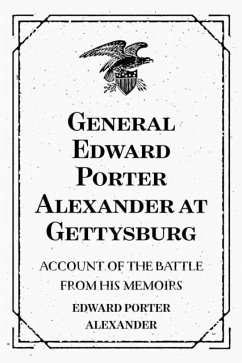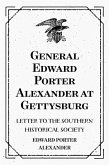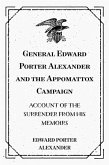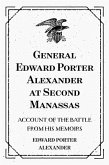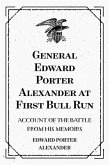In the narrative of the Civil War, Edward Porter Alexander has loomed larger in death than in life. Just 25 years old when the war broke out, Porter Alexander had already served as an engineer and officer in the U.S. Army, but the native Georgian resigned his commission in May 1861 and joined the Confederacy after his home state seceded.
Though he had served with distinction during the Civil War, it was Porter Alexander's memoirs that have kept his name alive today. While many prominent officers on both sides wrote memoirs, Porter Alexander's were among the most insightful and often considered by historians as the most evenhanded. With a sense of humor and a good narrative, Porter Alexander skillfully narrated the war, his service, and what he considered the successes and faults of others, including Lee, when he thought they had made good decisions or mistakes. As a result, historians continue to rely heavily on his memoirs as a source for Civil War history.
Porter Alexander played his biggest role at the Battle of Gettysburg. On the third day, Lee decided to make a thrust at the center of the Union's line with about 15,000 men spread out over three divisions. Though it is now known as Pickett's Charge, named after division commander George Pickett, the assignment for the charge was given to Longstreet, whose 1st Corps included Pickett's division. Longstreet had serious misgivings about Lee's plan and tried futilely to talk him out of it. Lee's decision necessitated a heavy artillery bombardment of the Union line and attempting to knock out the Union's own artillery before beginning the charge that would cover nearly a mile of open space from Seminary Ridge to the Union line on Cemetery Ridge. Lee tasked Porter Alexander, in charge of the 1st Corps' guns, to conduct the artillery bombardment. What resulted was the largest sustained bombardment of the Civil War, with over 150 Confederate cannons across the line firing incessantly at the Union line for nearly 2 hours, but as Longstreet and Alexander anticipated, the charge was an utter disaster, incurring a nearly 50% casualty rate and failing to break the Union line.
Dieser Download kann aus rechtlichen Gründen nur mit Rechnungsadresse in D, E, F, I ausgeliefert werden.

